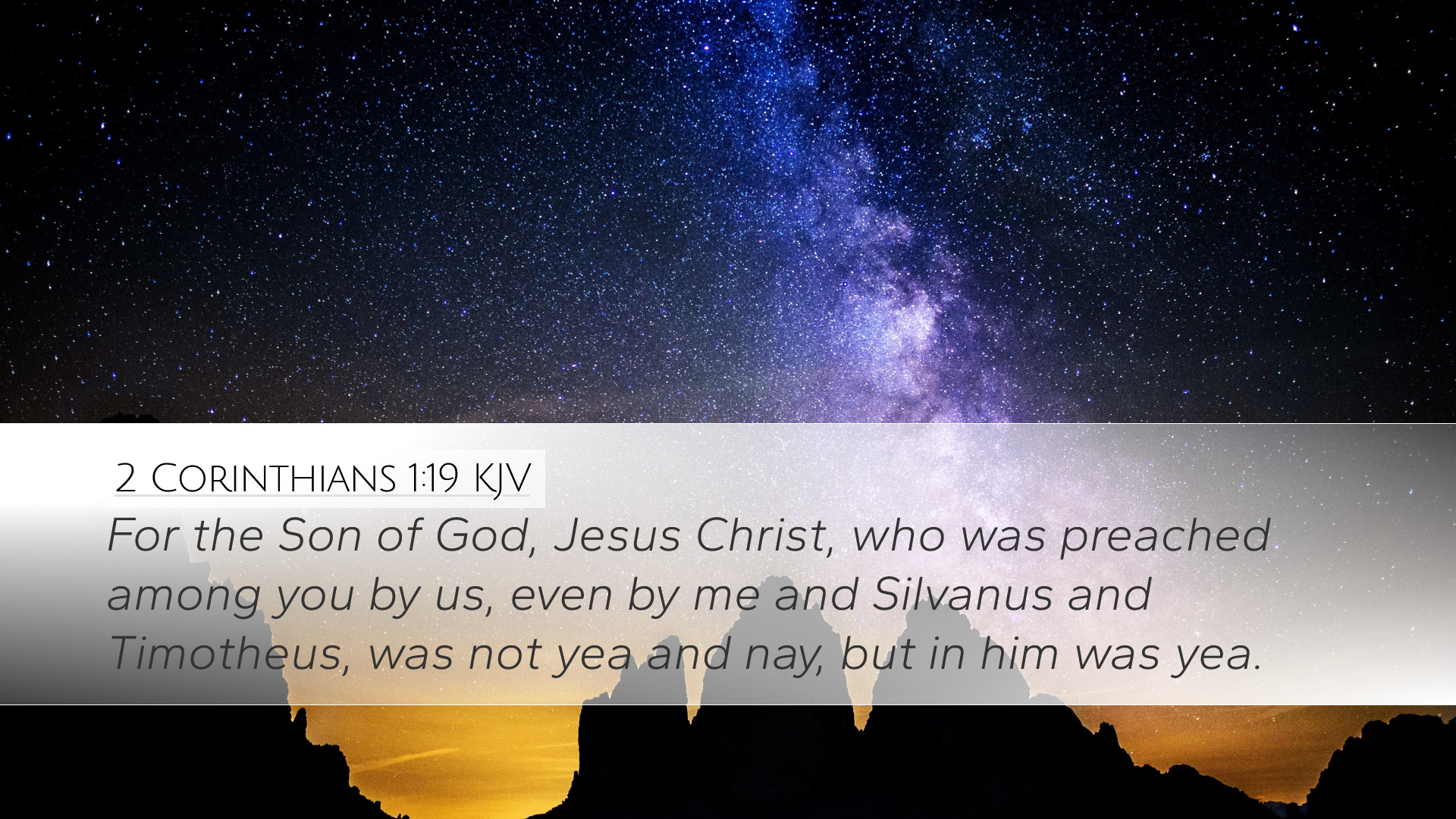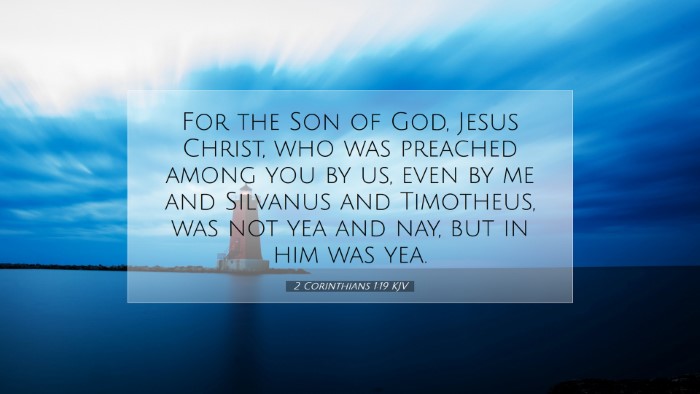Commentary on 2 Corinthians 1:19
Verse: "For the Son of God, Jesus Christ, who was preached among you by us, by me and Silvanus and Timothy, was not Yes and No, but in him was Yes."
Introduction
This verse, nestled within the rich tapestry of Paul's second letter to the Corinthians, highlights a crucial aspect of the Christian faith: the unwavering certainty of God's promises fulfilled in Jesus Christ. Here, the Apostle defends his ministry and reinforces the reliability of the message they preached.
Understanding the Context
To fully grasp the significance of 2 Corinthians 1:19, we must consider the situation in which Paul was writing. The Corinthian church faced challenges, with false teachers undermining Paul's authority and the integrity of the Gospel. Paul seeks to assure the believers of his sincerity and the truth of the message he proclaimed.
The Significance of Jesus Christ
Matthew Henry Commentary: Henry emphasizes that Jesus Christ is the focal point of God's promises. He was preached by Paul, Silvanus, and Timothy, underscoring the unity of their message and the apostolic witness. Christ is declared to be the embodiment of God's promises—when God says "Yes," it is fulfilled in Him.
The Assurance of Certainty
Albert Barnes Commentary: Barnes elaborates on the phrase "was not Yes and No." This expresses the idea of consistency and reliability. In a world filled with ambiguities, Christ stands as the definitive affirmation of God's truth. Every promise made by God finds its certainty in Jesus. Barnes stresses that there is no contradiction in God's intentions; He is faithful to His word.
Reflections on Paul’s Ministry
Adam Clarke Commentary: Clarke focuses on Paul's defense of his ministry against accusations of indecisiveness. Paul, in declaring Christ as the "Yes," presents a theological foundation for his own trustworthiness as a minister. This verse reinforces that Paul is not wishy-washy; his commitment to the Gospel and the authenticity of Christ is resolute.
Implications for the Believers
In this single verse, we see profound implications for believers in their walk of faith. The certainty of God’s fulfillment through Christ offers a foundation for hope, encouraging believers to trust in God's promises. The unity of the apostolic witnesses also serves as a model for the church today, reminding us of the importance of communal agreement in the truth we proclaim.
Theological Insights
- The Nature of Christ: Christ's identity as the Yes is key to understanding the fullness of God's character—He is trustworthy, faithful, and dependable.
- Promised Fulfillment: This verse emphasizes that God's promises are not conditional or open to interpretation; they are fulfilled in the person of Jesus.
- Interrelationship of the Trinity: The affirmation of Jesus as the Yes acknowledges the complete harmony of purpose between the Father, Son, and Holy Spirit.
Practical Applications
For pastors and church leaders, this verse serves as an encouragement to maintain clarity and commitment in preaching the Gospel. It poses a challenge to avoid ambiguity in the message of Christ. For theologians and scholars, it inspires deeper exploration into the character and nature of Jesus as Central to Christian doctrine.
Encouragement in Trials
The believers are reminded of God’s unwavering support in trials and tribulations. Much like the Corinthian church faced challenges, modern believers are reassured that the promises of Christ stand firm—even in uncertainty and difficult seasons.
Building Trust in Ministry
In a world where leaders often fall short of their promises, the characterization of Christ as Yes provides a crucial framework for integrity in ministry. Pastors are called to emulate this reliability, leading their congregations faithfully as stewards of the truth.
Conclusion
2 Corinthians 1:19 illustrates the profound truth of Christ as the declaration of God's promises. It calls believers to trust in the reliability of God's word and encourages ministers to reflect Christ’s unwavering nature in their calling. The insights from public domain commentaries enhance our understanding and appreciation of this foundational scripture.


